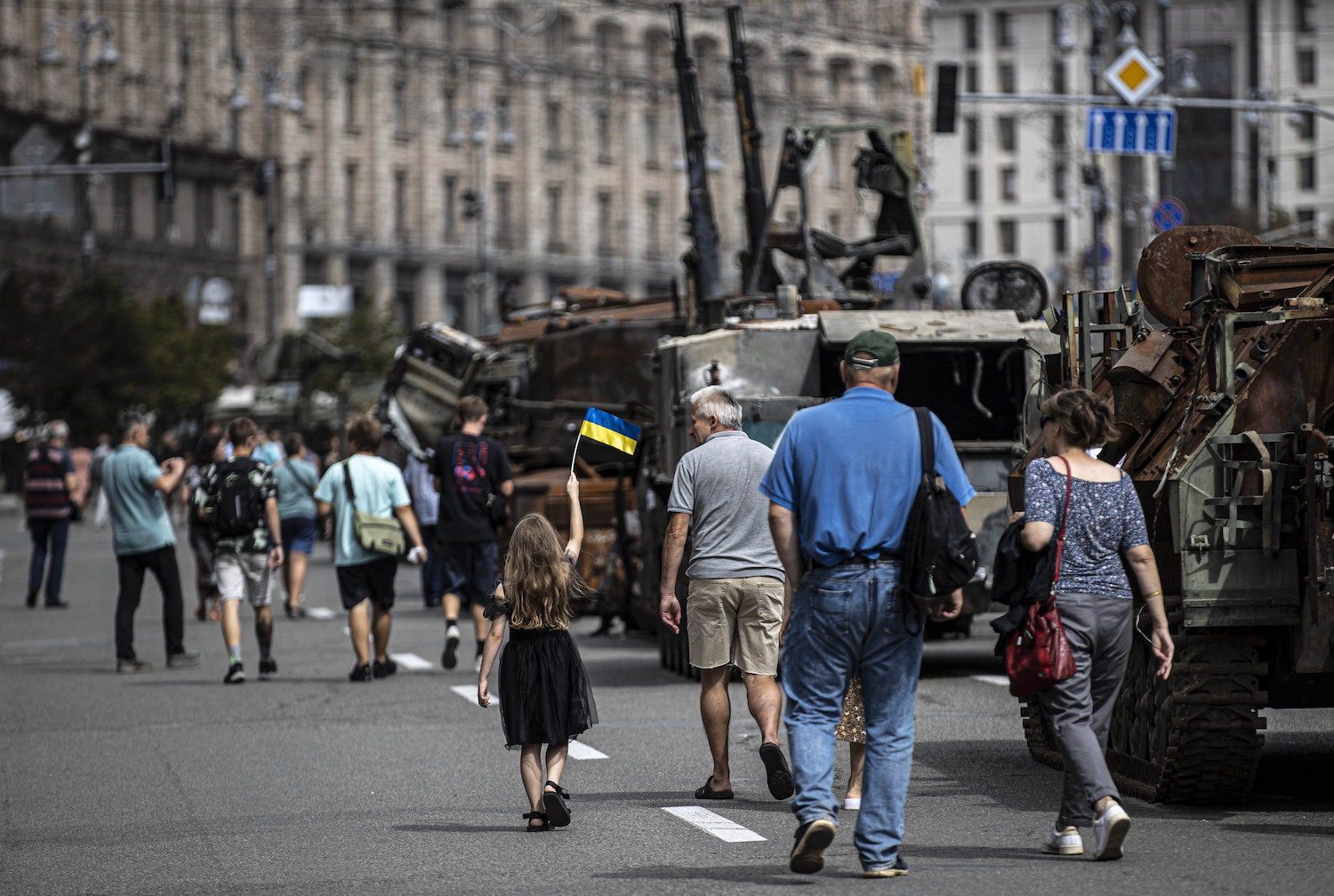Ukraine marks Independence Day while bracing for Russian attacks
Today marks six months since Russia’s invasion and 31 years of freedom from the Soviet Union

A free daily email with the biggest news stories of the day – and the best features from TheWeek.com
You are now subscribed
Your newsletter sign-up was successful
Ukraine is commemorating its Independence Day with muted celebrations as it braces for possible Russian attacks.
Wednesday marks 31 years since Ukraine gained independence from the Soviet Union but it is also six months to the day since Russia’s invasion, which has killed thousands of civilians and military personnel.
Large Independence Day celebrations have been banned by the Ukrainian government due to fears of further Russian bombardments, with the annual parade through the streets of the capital Kyiv replaced by “wrecked and captured Russian military vehicles including tanks”, said CNN.
The Week
Escape your echo chamber. Get the facts behind the news, plus analysis from multiple perspectives.

Sign up for The Week's Free Newsletters
From our morning news briefing to a weekly Good News Newsletter, get the best of The Week delivered directly to your inbox.
From our morning news briefing to a weekly Good News Newsletter, get the best of The Week delivered directly to your inbox.
The US State Department warned on Tuesday that it had information that Russia could step up its attacks on civilian and government buildings in Ukrainian cities in the coming days.
The tense atmosphere in Kyiv this week has been a “rare blip in the apparent rapid recovery” of the capital, said Dan Sabbagh in The Guardian. Since the Russian army’s failed capture of the city in March, Kyiv has been “bustling” with a “deceptive” sense of normality. That “sense of normalcy is fragile” as the war continues to rage further east and south, said The New York Times.
The mood in Kyiv this week has been “sombre”, with tightened security and residents, who have not seen an attack by Russian missiles since April, asked to pay “special attention” to air-raid sirens.
Zelenskyy remains defiant
Ukraine’s President Volodymyr Zelenskyy remained defiant amid the warnings of intensified Russian attacks, declaring that any “disgusting Russian provocations and brutal strikes” would be met with a “strong response”.
A free daily email with the biggest news stories of the day – and the best features from TheWeek.com
In a video address aired on Independence Day, Zelenskyy told citizens that Ukraine was “reborn” when Russia invaded on 24 February, adding that the country is now aiming for a triumphant end to the war. “We used to say: peace,” he said. “Now we say: victory.”
Ukraine has increased its assault on Russia in occupied areas in recent weeks, particularly in the annexed Crimean Peninsula, where the army has been “waging a series of hit-and-run attacks on Russian targets”, reported The New York Times. Fears of a violent retaliation were raised on Monday after Russia accused Ukraine’s special services of being behind the killing of Darya Dugina, the daughter of an ultra-nationalist Russian.
Richard Windsor is a freelance writer for The Week Digital. He began his journalism career writing about politics and sport while studying at the University of Southampton. He then worked across various football publications before specialising in cycling for almost nine years, covering major races including the Tour de France and interviewing some of the sport’s top riders. He led Cycling Weekly’s digital platforms as editor for seven of those years, helping to transform the publication into the UK’s largest cycling website. He now works as a freelance writer, editor and consultant.